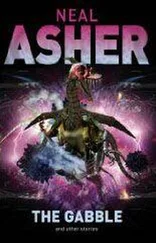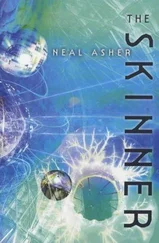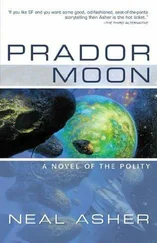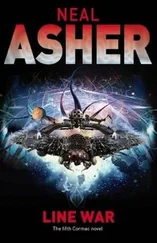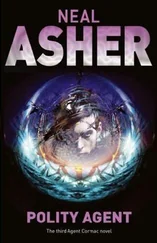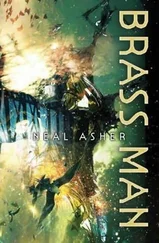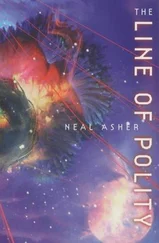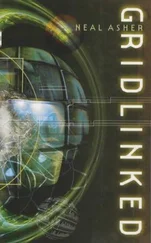Neal Asher - Zero Point (Owner Trilogy 2)
Здесь есть возможность читать онлайн «Neal Asher - Zero Point (Owner Trilogy 2)» весь текст электронной книги совершенно бесплатно (целиком полную версию без сокращений). В некоторых случаях можно слушать аудио, скачать через торрент в формате fb2 и присутствует краткое содержание. Жанр: Старинная литература, на английском языке. Описание произведения, (предисловие) а так же отзывы посетителей доступны на портале библиотеки ЛибКат.
- Название:Zero Point (Owner Trilogy 2)
- Автор:
- Жанр:
- Год:неизвестен
- ISBN:нет данных
- Рейтинг книги:3 / 5. Голосов: 1
-
Избранное:Добавить в избранное
- Отзывы:
-
Ваша оценка:
- 60
- 1
- 2
- 3
- 4
- 5
Zero Point (Owner Trilogy 2): краткое содержание, описание и аннотация
Предлагаем к чтению аннотацию, описание, краткое содержание или предисловие (зависит от того, что написал сам автор книги «Zero Point (Owner Trilogy 2)»). Если вы не нашли необходимую информацию о книге — напишите в комментариях, мы постараемся отыскать её.
Zero Point (Owner Trilogy 2) — читать онлайн бесплатно полную книгу (весь текст) целиком
Ниже представлен текст книги, разбитый по страницам. Система сохранения места последней прочитанной страницы, позволяет с удобством читать онлайн бесплатно книгу «Zero Point (Owner Trilogy 2)», без необходимости каждый раз заново искать на чём Вы остановились. Поставьте закладку, и сможете в любой момент перейти на страницу, на которой закончили чтение.
Интервал:
Закладка:
‘Charlie,’ the woman addressed the old man, ‘he’s with you, apparently.’
The old guy swung round and recognition struck like a blow. Alex gasped and jerked back, both his feet actually coming away from the floor. The proctor reached out with one hand and caught him by the shoulder, dragging him back down.
‘I’ve built a hide in the big walnut tree,’ explained Charlie. ‘From there we should be able to cover most of the thin-soil areas.’
His face was different, of course, but it was the same one that Alexandra had found. Moreover, Alex recognized him on some deeper visceral level. Here stood Alessandro Messina, or at least what that man had now become. Here in front of him stood the very reason for Alex’s existence.
The woman reached out and patted the Chairman’s shoulder. ‘Charlie here has turned out to be quite useful,’ she said. ‘Though he’s forgotten a lot of his past, his inborn abilities and early training in the Inspectorate military have not been erased. Apparently Charlie once used to be a sniper.’
Alex knew everything it was possible to know about Messina, had treasured that knowledge. The man had indeed been a sniper in the military, eighty years ago, before promotion to command and then promotion out of fatigues into a suit and onto the first rungs of the Executive. A natural ability? Of course, it was one Alex himself possessed.
‘But remember, Charlie,’ said the woman, ‘wait until they are out of the penetration locks. A stray shot inside might result in an atmosphere breach.’
‘Sure,’ said the erstwhile Messina, looking very serious. ‘These bastards are going to be good for my plants – they’re not going to kill them.’
‘Attaboy,’ she said.
‘Good for your plants?’ Alex repeated numbly.
The mind-wiped Alessandro Messina peered at him carefully. ‘Yeah, we turn them into fertilizer.’ He reached out a hand to the woman. ‘Need to get moving now.’
The woman gazed at the proctor, who gave her a nearly imperceptible nod. She shrugged off the strap of the rifle she was carrying and handed it over. Messina swung it round and held it out to Alex. ‘I hear that you should be a good shot, too.’
Alex just stood there dumbfounded. All that was left of his Chairman, his Alessandro Messina, stood before him right now, quite adamantly stating that he would be fighting the Scourge ’s assault force. Two contrary views were so at war inside Alex that they caused a physical pain in his torso.
‘If the assault force soldiers manage to get in,’ said the proctor, ‘their prime aim will be to get hold of the Gene Bank samples. They will kill anyone who stands in their way.’
It was a statement that Alex could not deny. In the end the answer was quite simple: he would fight beside his Chairman and do everything he could to prevent him being killed. He would obey his Chairman because that was what he had been programmed to do. Nothing outside of these facts was relevant. He took hold of the rifle.
‘Yes,’ he said, ‘I am a good shot.’
Earth
It was time to assess broadly how things stood with Earth and to make some plans for the future. To this end Serene began running a computer model of the entire economy and environment of Earth. This particular model was the best available, with its ability to predict about four days into the future – before a butterfly flapped its wings somewhere and the whole thing went tits-up. However, she wasn’t interested in predictions but in the neat and easily digestible way the present and the past were displayed.
Despite everything she was throwing into orbit, and Professor Calder’s massive spend, Earth’s resources were at a hundred-year high. This was simple mathematics really: production itself was mainly robotized and only limited by materials and energy supply, so it had been little damaged by the massive reduction in population. And while Saul’s attack on the Committee had damaged production to a certain extent, it had also benefited it by causing a reduction in political control. Consumption, on the other hand, had been vastly reduced. Running some further calculations, Serene found that Calder’s spend accounted for less than ten per cent of the gain made from reduced consumption.
Economically, Earth was looking good. Environmentally it was also better, but the gain was a questionable one. While wilderness areas were on the increase, there didn’t seem to be much yet that could grow wild in them. Reviewing extinction and environmental-destruction statistics, and specific stories related to them, Serene began to unearth some disconcerting realities, all expressed in a rather neat little graph.
It seemed that, while the extinction and biosphere destruction rate had been steadily increasing in line with the rise in population, that rise had not been as deadly as was claimed at the start of the previous century. Certainly there had been some big, newsworthy extinctions – like those of the tiger, the lion, the elephant and the grey whale – but they were not the kind that could result in the death of Earth’s biosphere. The dangerous stuff had come later; in fact it had ramped up markedly under Committee rule, and one of the stories before her illustrated why.
The North African breadbasket, as it had been called, was a Committee attempt to increase food production. Large portions of North Africa were turned over to agriculture; massive populations were relocated southwards – the whole process wiping out many indigenous species. Desalination plants were built to supply extra water but, due to a cost-based political decision, the resultant salt was dumped in storage bays inland. When, in the middle of the last century, the weather took one of its cyclic turns for the worse, resulting in an upsurge of rain in North Africa, billions of tons of salt had dissolved and run out into the fields, turning them barren. Meanwhile, nitrate and insecticide run-off had caused massive algae blooms and fauna deaths in the Mediterranean, shortly followed by an extension of coastal dead zones, until they met up with those extending out from southern Europe. The North Africa breadbasket had killed a large portion of the Mediterranean Sea.
Serene felt a moment of extreme disgust and annoyance. She had always felt that the Committee was utterly inefficient and this story perfectly illustrated why. Its problem, in the end, was that it had not properly rid itself of its human-centric take on governance. While it understood that humans had to be controlled for their own benefit, it had not grasped that they needed to be controlled for the benefit of more than that. They had to be controlled so as to maintain the ideal that was Earth – something she herself could see plainly but other humans apparently missed. It was the right and proper duty of a ruler to ensure everything in the human world ran at optimum efficiency, while also accepting that the human race was a plague on the face of the planet, an aberration which had its natural-world equivalents but was much more dangerous.
She sat back, scanning her garden, and noticed that some of the shrubs which she had thought were dead had put out new buds. Perhaps the nutrients provided directly by her previous horticulturalist were starting to do the trick. A distraction, however, so she returned to her thoughts.
The human race was a problem, and on those terms she must think to the future. While she herself was alive, it was a problem that could be controlled. Though medical research was reporting further breakthroughs in the banishment of senescence, and she could extend her own life, she still might die and whoever took over might not be as resolute.
Senescence . . .
Research into life extension was certainly right and proper for her, and for those she found useful, but perhaps it was time to consider a complete reversal of that concept as regards the bulk of the human race. In the end it came back to her earlier thoughts about modifying humanity.
Читать дальшеИнтервал:
Закладка:
Похожие книги на «Zero Point (Owner Trilogy 2)»
Представляем Вашему вниманию похожие книги на «Zero Point (Owner Trilogy 2)» списком для выбора. Мы отобрали схожую по названию и смыслу литературу в надежде предоставить читателям больше вариантов отыскать новые, интересные, ещё непрочитанные произведения.
Обсуждение, отзывы о книге «Zero Point (Owner Trilogy 2)» и просто собственные мнения читателей. Оставьте ваши комментарии, напишите, что Вы думаете о произведении, его смысле или главных героях. Укажите что конкретно понравилось, а что нет, и почему Вы так считаете.


